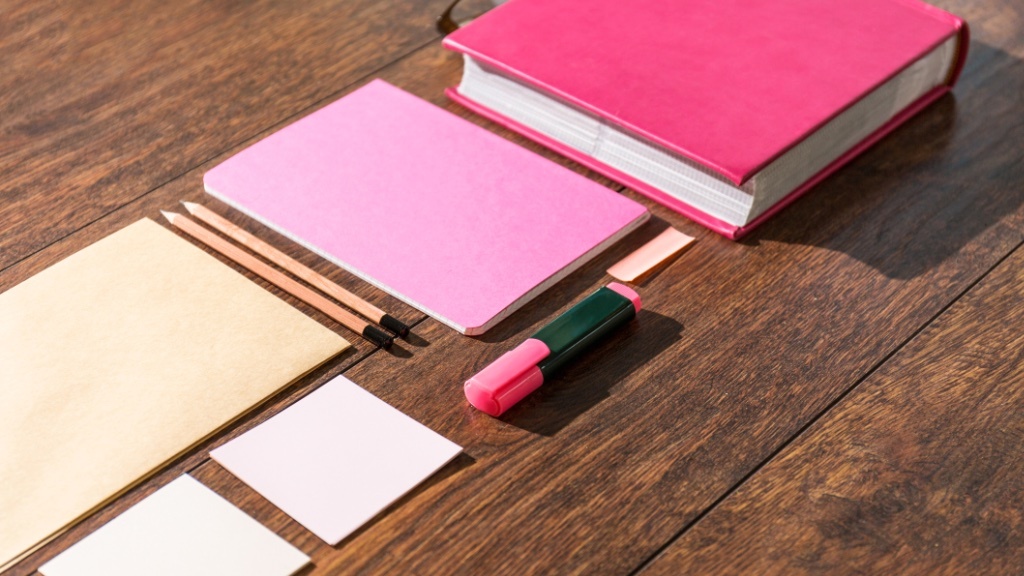Let structure be about habits
Datum: 2024-01-04 10:09

Erik emailed me the other day and asked me what structure habits that make the greatest difference when it comes to our efficiency — both my own and others’. I think it is an interesting question, that also in a way pinpoints the core of what working with structure is really all about.
For you who prefer listening to reading, this post is also available as an episode of the “Done!” podcast:
We create and establish habits for our daily lives and work as to avoid pitfalls of structure and to get our work done easier. We organize and systematize the tangible parts of our work (such as documents and tools), but to automatically act according to how we would want to act in a given situation is definitely an important key to being efficient.
Our common habits
The habits that really help us can be of all kinds and deal with every type of conceivable situation. After pondering the matter, I listed a selection of the habits I, and perhaps you too, find most important:
- to at least once a day collect all the potentially scattered notes with all the things we have to do and once again compile them by adding them to our to-do-list
- to only use reminders when we truly need them, so that they still mean something to us and are not just dismissed as distractions
- to close or hide the email program when we want to get things that have nothing to do with emailing done
- to shut out background noise with music or white noise in headphones when we cannot do anything about the disturbing sound and need to focus
- to scan receipts with my smartphone and send them to the accountant immediately instead of just putting them somewhere ”for now”
- to start every workday by doing a morning routine that gives me a quick overview of what I have planned and scheduled throughout the day, and what ideas, tasks or meetings I have added in the past 24 hours
- to draft a simple checklist as soon as I do something which I am noticing is difficult and which I will need to do again
- to dedicate four hours a week to development work
- to add what I promised to get done during the meeting as to-do-tasks to my to-do-list right after the meeting is over
- to label the tasks that distinctly contribute to attaining the business goals with an ”important”-label, and begin the day by doing these tasks
- to take a look one month ahead and one month back in the calendar once every week
- to set my phone to ”do not disturb” mode as soon as I want to make myself unavailable for phone calls — regardless the reason for wanting privacy
- to put away everything on my desk that might distract me from what I want to focus on right now
- to use the time I spend standing in line or waiting for something to read materials that otherwise tend to pile up
- to prioritize a task that I need to be in a certain location (which I seldom visit) to do, when I happen to be in the vicinity of said location
- … and so on
It is hard to say what specific habits that have made the most difference to me, but they all somehow have their part to play and serve a purpose when they turn situations that might have caused frustration and anger into parts in a constructive and smooth workflow. Instead of trying to single out a few super-habits, let us view our habits as part of the structure we have created to make our workday as stable as possible, especially in places where it might have been weak or unpredictable without it.
Do this
If you want to, do this:
- Sit down for a few minutes and make a list of all the habits you are grateful for having established.
- Take a few extra minutes to think about what situation you often find yourself in that you might be able to improve or remove completely by establishing a new habit. The more vividly you describe the situation or problem, the easier it will be to think of a habit that could solve your predicament.
- So, what could you do to avoid the problem or stop the situation from occurring, or to take the edge off the ”damage” once it is done? (If you really cannot think of anything — email me, and perhaps I will have a few ideas for you.)
- Try formulating the new habit as concretely as you can, for instance in the form of ”when [something happens], I will [do this]”.
- If you want some tech-support when establishing the new habit, use an app such as Strides (iOS) or Habit Streak (Android).
Better and better for each habit your establish
If you create, establish and adhere to new habits as you discover new areas in your work that could use a bit of efficiency, you will gradually create a better structure and by doing so have more time for what truly matters — in your work and in your personal life. By continuously refining and making small readjustments you will keep improving your efficiency, and eventually deal with the stressful moments in your life with greater ease.
What is your favorite method?
What would you say is the habit (or habits) that has influenced your structure and efficiency the most? Please tell me!
You can get more tips

If you want more tips on how to create good structure at work, there are many ways to get that from me - in podcasts, videos, books, talks and other formats.




